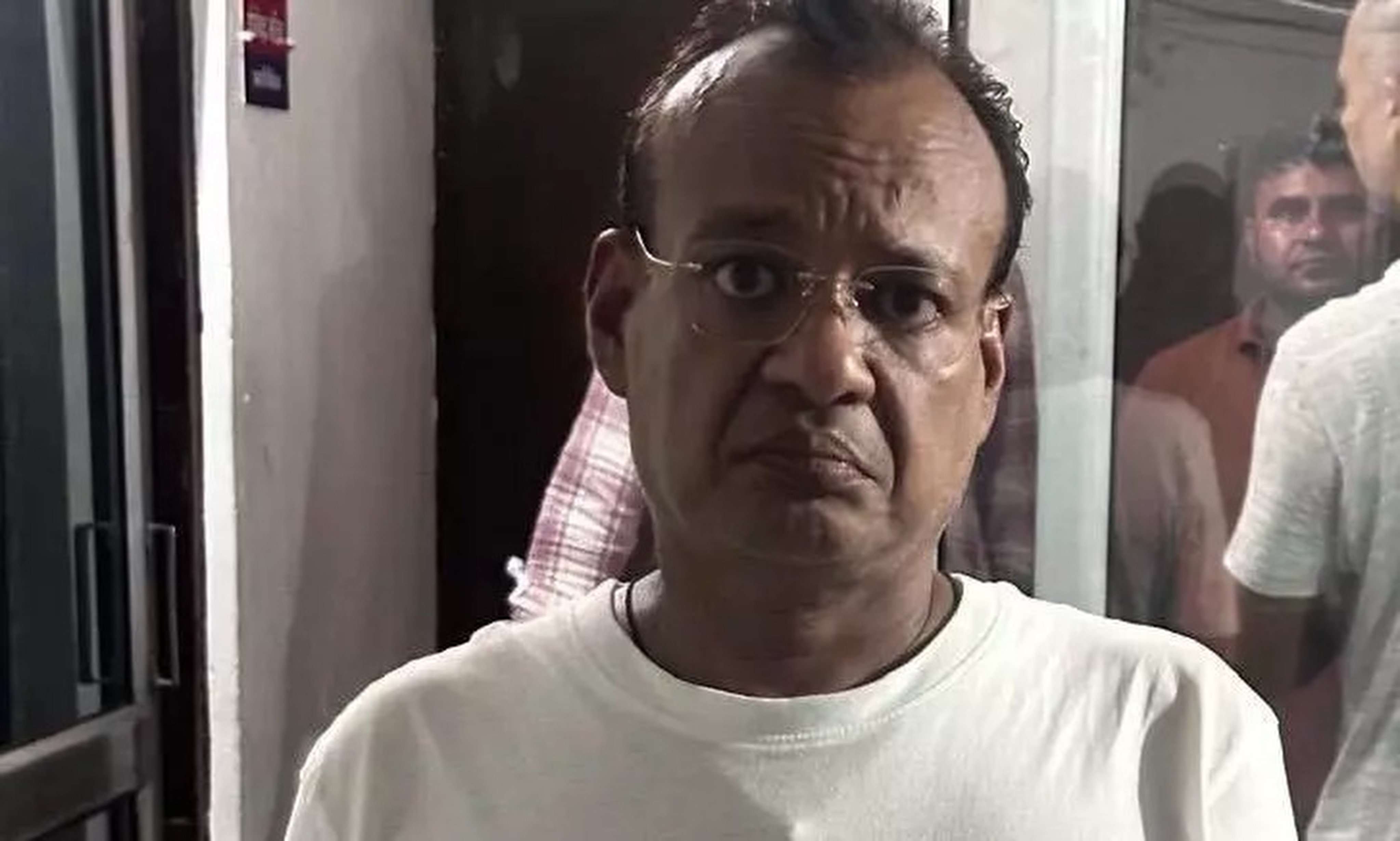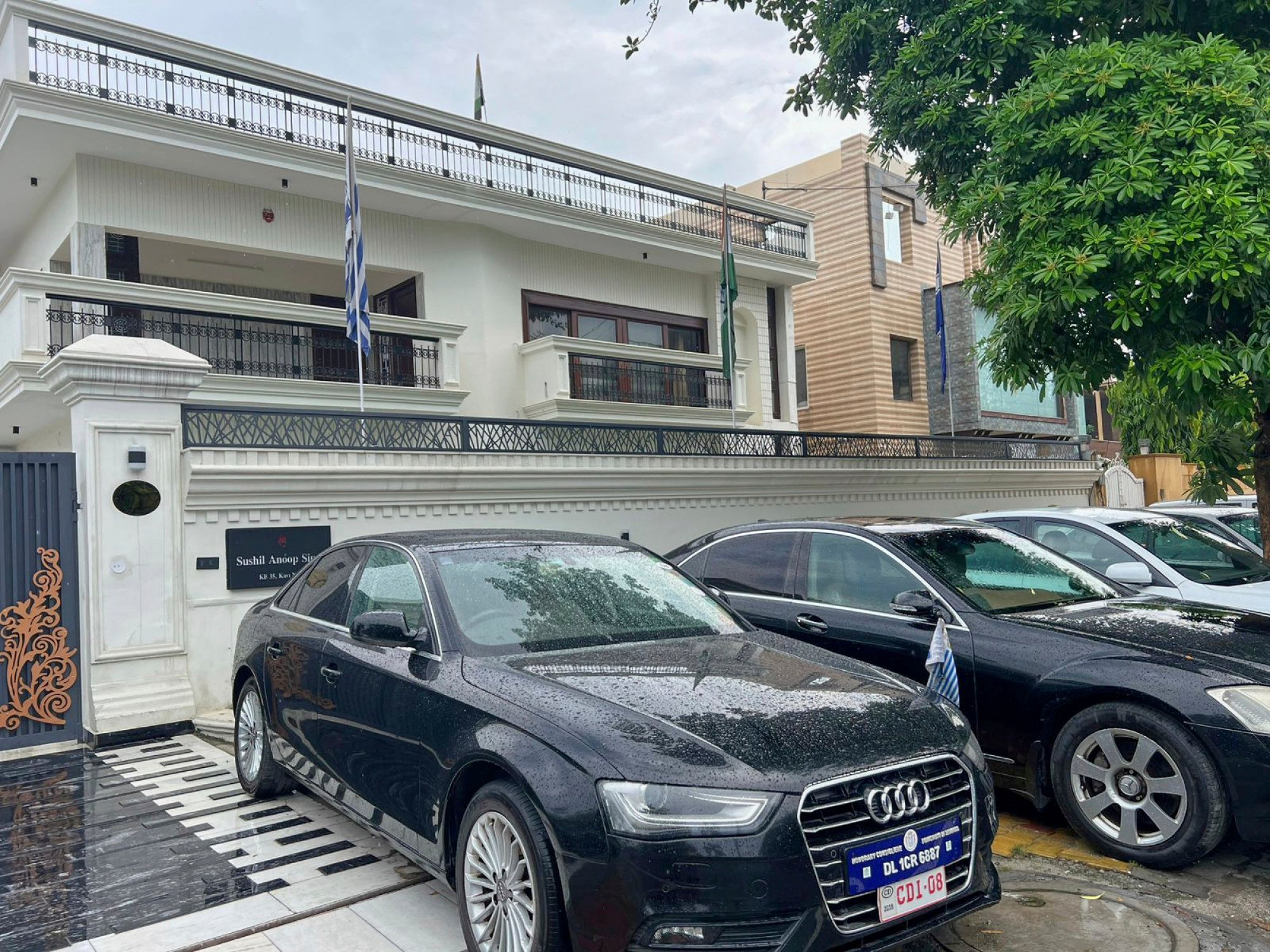Fake ambassador arrested in India for running embassy of imaginary micronations
Police say he posed as a diplomat for fictional countries to exploit jobseekers and launder money through shell firms

Police in India have arrested a man who allegedly ran a fake embassy from a luxury bungalow near New Delhi for seven years, using it to front job scams and a money-laundering operation under the guise of representing fictional countries like “Westartica” and “Saborga”.
The suspect, 47-year-old Harshvardhan Jain, had styled himself the “Baron of Westartica” and projected the image of a globe-trotting diplomat, complete with diplomatic vehicles, forged documents and Photoshopped images of him alongside world leaders. But authorities say his real enterprise was far more mundane – and criminal.
Jain allegedly duped jobseekers by promising them employment abroad and laundered money through shell companies via the hawala system – an informal, unregulated method of transferring funds that operates outside traditional banking channels – according to the Special Task Force of Uttar Pradesh Police.
“The accused was running the bogus embassy from a rented house and projected himself as a consul or ambassador of non-existent countries such as Westarctica, Saborga, Poulvia and Lodonia,” Additional Director General of Police Amitabh Yash told The Times of India.

Investigators described a surreal scene at the so-called consulate in Ghaziabad, just east of the Indian capital, where they found multiple national flags, forged seals from India’s Ministry of External Affairs, fabricated foreign passports and press credentials, and four cars bearing fake diplomatic licence plates.
A small golden nameplate at the door bore the words: “His Excellency Harsh Vardhan Jain, Royale Consigliere, Principato di Seborga” (Royal Adviser to Seborga).
“The cars and the property that he had built, and the whole lavish set-up was to show that he is an important person. He used to assure people that he would get their work done in these fictional countries,” Uttar Pradesh Special Task Force Senior Superintendent of Police Sushil Ghule told The Indian Express.
Local media reported that Jain went as far as hosting charity events to burnish his credentials. However, his own appearance let him down, with officials saying he “didn’t look like the ambassador of any such place”, according to Indian news outlet The 420.
A tip-off led officers to raid the compound on Tuesday and seize nearly 4.5 million rupees (US$52,100) in cash, including foreign currency, along with forged materials.
While he now faces charges of forgery and fraud, police say this is not Jain’s first brush with the law – and that his past is as murky as the persona he created.
“Investigations revealed Jain’s past connections with godman Chandraswami and weapon trader Adnan Khagoshi, an international arms dealer,” Yash told The New Indian Express.
“In 2011, Jain was found with illegal satellite phones, and a case was registered against him at the Kavi Nagar police station in Ghaziabad.”
Unhandled type: inline-plus-widget {“type”:”inline-plus-widget”}
Police believe Jain exploited the ambiguous legitimacy of micronations – self-declared entities with no international recognition – to give his scams an air of credibility.
These entities, including Westartica, Seborga and Lodonia, were created by others and have no legal status, but maintain elaborate online presences and self-styled aristocracies that can mislead those unaware of their origins.
Westartica, for example, claims territory in Antarctica and was established in 2012 by former US Navy officer Travis McHenry, who styles himself “Grand Duke Travis”. Though it has no permanent population, the group says it has 2,500 “citizens” worldwide and issues its own passports, stamps and currency.
Jain appeared to have successfully latched onto this performative diplomacy. The official Instagram page of Westartica had featured his fake consulate days before the raid, noting that “Baron HV Jain” had been representing the group since 2017 and regularly hosted charity events.
Seborga, by contrast, is a micronation within Italy’s Liguria region. Its backers claim the village of Seborga rightfully constitutes an independent principality based on contested historical documents, and since the 1960s locals have elected ceremonial princes, minted a local currency and established a volunteer “border guard”.